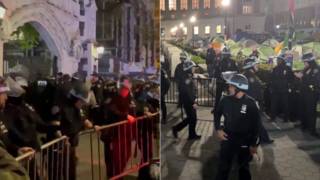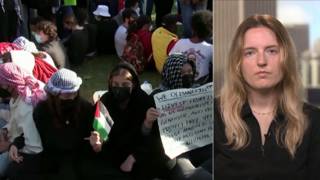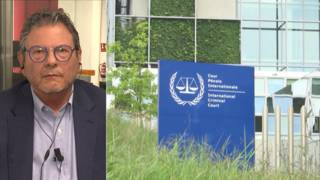A commission has found U.S. medical experimentation conducted in Guatemala during the 1940s resulted in the deaths of 83 people. The testing focused on sexually transmitted diseases and involved U.S. medical officials intentionally infecting Guatemalan sex workers, prisoners, soldiers and mental patients — without their permission — in order to study the effects of Penicillin. President Obama put together the commission to investigate the program when it was unearthed late last year. On Tuesday, the commission concluded nearly 5,500 people were subjected to diagnostic testing in Guatemala, and more than 1,300 were exposed to venereal diseases by contact or inoculations. Guatemalan President Álvaro Colom has described the experiments as a “crime against humanity” and ordered his own investigation. The Guatemala program was discovered by Wellesley College Professor Susan Reverby while she was researching the infamous Tuskegee experiments. Professor Reverby spoke to Democracy Now! last year and discussed how much U.S. officials knew about the practices the program’s architect, John Cutler, was engaged in.
Professor Susan Reverby, Wellesley College: “It’s too easy to say, 'OK, this was a period when there wasn't research norms or any of the kind of regulations we’ve had in place since the mid-'70s.' But Cutler’s bosses at the Public Health Service knew this was sort of really on the edge. And the quote that I found that just really knocked me off the chair was one from the surgeon general himself, who said — and this is secondhand, but it was in a letter to Cutler where one of his colleagues said, 'The surgeon general says, “Well, we couldn't do this in the United States.”’ And that’s just a stunning, absolutely stunning, acknowledgment of what was going on.”









